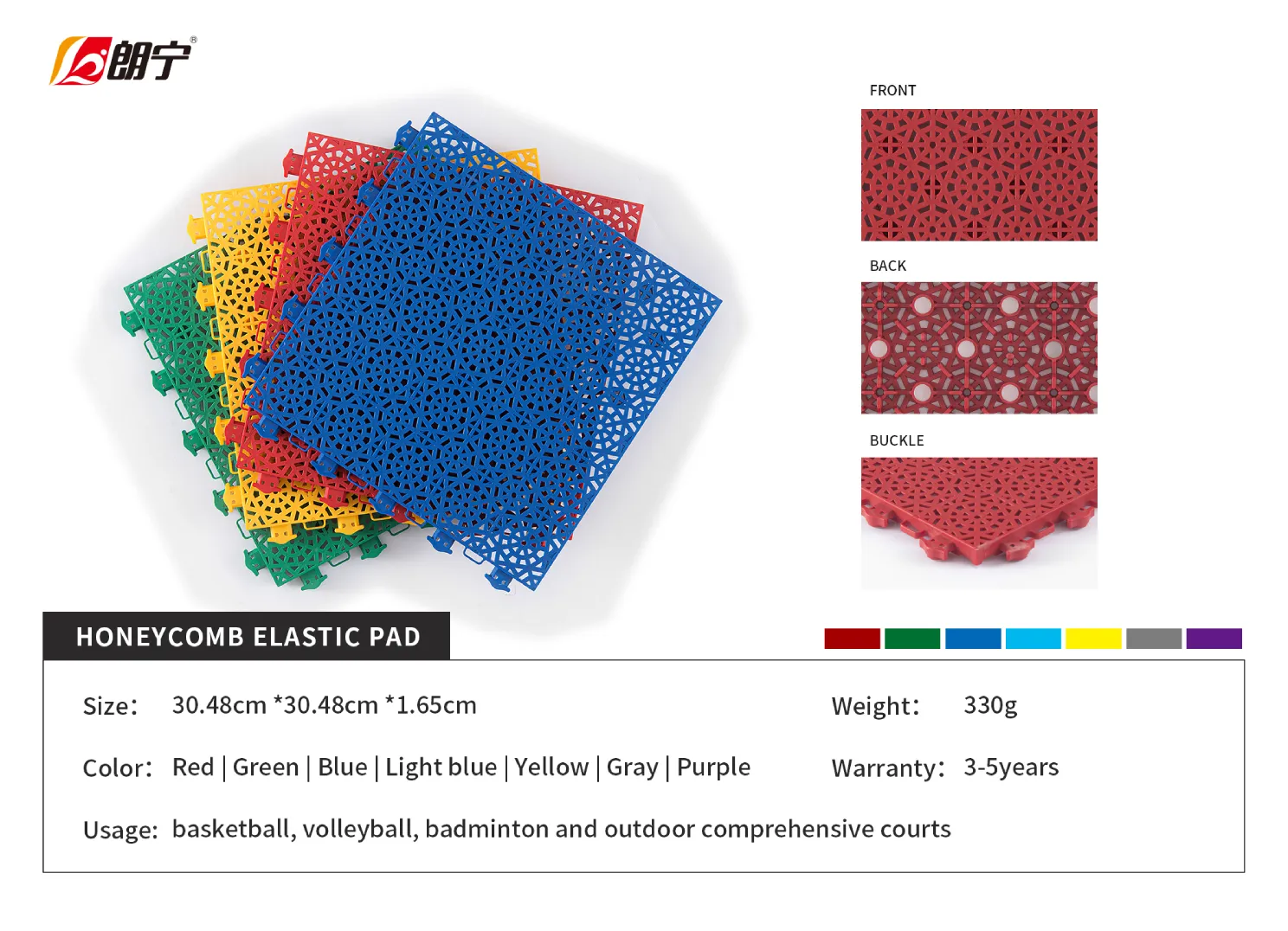- Afrikaans
- Arabic
- Belarusian
- Bengali
- Croatian
- Czech
- Danish
- Dutch
- English
- Estonian
- Finnish
- French
- Georgian
- German
- Greek
- hawaiian
- Hungarian
- Indonesian
- irish
- Italian
- Japanese
- kazakh
- Khmer
- Korean
- Kyrgyz
- Lao
- Latin
- Macedonian
- Malay
- Mongolian
- Myanmar
- Norwegian
- Persian
- Polish
- Portuguese
- Romanian
- Russian
- Serbian
- Spanish
- Swedish
- Tagalog
- Thai
- Turkish
- Turkmen
- Ukrainian
- Urdu
- Uzbek
- Vietnamese
- Zulu
basketball court flooring material
Choosing the Right Flooring Material for Basketball Courts
When it comes to basketball, the quality of the court surfaces can significantly impact the gameplay experience, player safety, and maintenance requirements. Understanding the various flooring materials available for basketball courts can help facility managers, coaches, and players ensure they choose the most suitable option for their needs.
Types of Flooring Materials
1. Hardwood Flooring Hardwood is the traditional choice for basketball courts, especially in professional and collegiate settings. It's known for its durability, aesthetic appeal, and excellent performance characteristics. Properly maintained hardwood floors provide a consistent surface that enhances ball bounce and player traction. Maple is the most commonly used wood because of its resilience and ability to withstand the rigors of high-impact play. However, hardwood requires significant maintenance, including regular refinishing and humidity control, which can contribute to higher long-term costs.
2. Synthetic Flooring Synthetic flooring materials are increasingly popular due to their low maintenance requirements and versatility. These surfaces can mimic the qualities of hardwood while offering additional benefits. Common options include rubber and vinyl.
- Rubber Flooring Often used in multi-purpose sports facilities, rubber flooring provides excellent shock absorption, which can minimize injury risk for players. It's also resistant to wear and can handle moisture, making it an ideal choice for gyms that experience high traffic or varying weather conditions. However, rubber may not offer the same level of bounce or sliding performance as traditional hardwood. - Vinyl Flooring Vinyl is another popular synthetic option that combines durability with ease of maintenance. These resilient sheets are designed to withstand heavy use while providing a good grip for athletes. Modern vinyl sports flooring often incorporates technologies to enhance shock absorption and moisture resistance, making it suitable for both recreational and competitive play. Additionally, vinyl is available in various colors and designs, allowing for customization to match team branding or facility aesthetics.
3. Sport Court Tiles Interlocking sport court tiles are designed for both indoor and outdoor use, making them a versatile choice for basketball facilities. These tiles are typically made from high-density polyethylene (HDPE) and provide great traction, durability, and ease of installation. They allow for excellent drainage, making them particularly suitable for outdoor courts where weather elements can play a role in maintenance. Sport court tiles can also be replaced individually, reducing long-term maintenance costs.
basketball court flooring material

Factors to Consider
When selecting the appropriate flooring material, several factors should be taken into account
- Usage Frequency The volume of play—whether it's for community leagues, schools, or professional training—will largely determine the necessary durability and performance characteristics. - Budget Initial installation costs may vary significantly between options. While hardwood might have a higher upfront investment, synthetic options could provide savings in maintenance over time.
- Safety and Comfort Player safety is paramount. Floors should provide adequate cushioning while minimizing the risk of slips and falls. Shock-absorbing materials are crucial, particularly for young players or those with a history of injuries.
- Environmental Conditions Temperature and humidity levels can affect certain materials. For instance, hardwood can expand and contract, leading to potential warping. Synthetic options often perform better in variable conditions.
Conclusion
Choosing the right flooring material for basketball courts involves balancing performance, maintenance, cost, and player safety. Each option has its own unique benefits and limitations, and understanding these can aid in making informed decisions. By investing in quality flooring, sports facilities can enhance the player experience, promote safety, and ensure longevity, ultimately contributing to the success and enjoyment of the game.
-
Benefits of PP Interlocking Floors for Gym SpacesNewsJul.08,2025
-
Durability Testing for Interlocking Sports Floor TilesNewsJul.08,2025
-
Overview of Tennis Court Flooring MaterialsNewsJul.08,2025
-
Portable Basketball Floor SystemsNewsJul.08,2025
-
Eco-Friendly Badminton Court Flooring OptionsNewsJul.08,2025
-
Durability Testing for PVC Floor Mat RollsNewsJul.08,2025
-
Top Materials Used in Tennis Court FlooringNewsJul.03,2025

